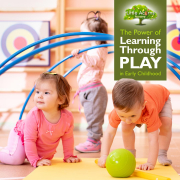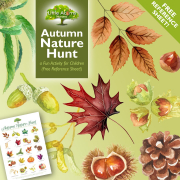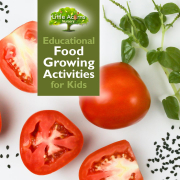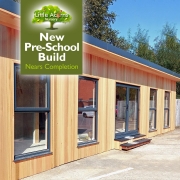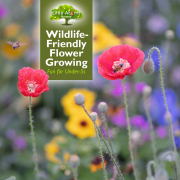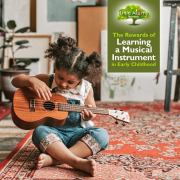Ultimate Guide To Forest School
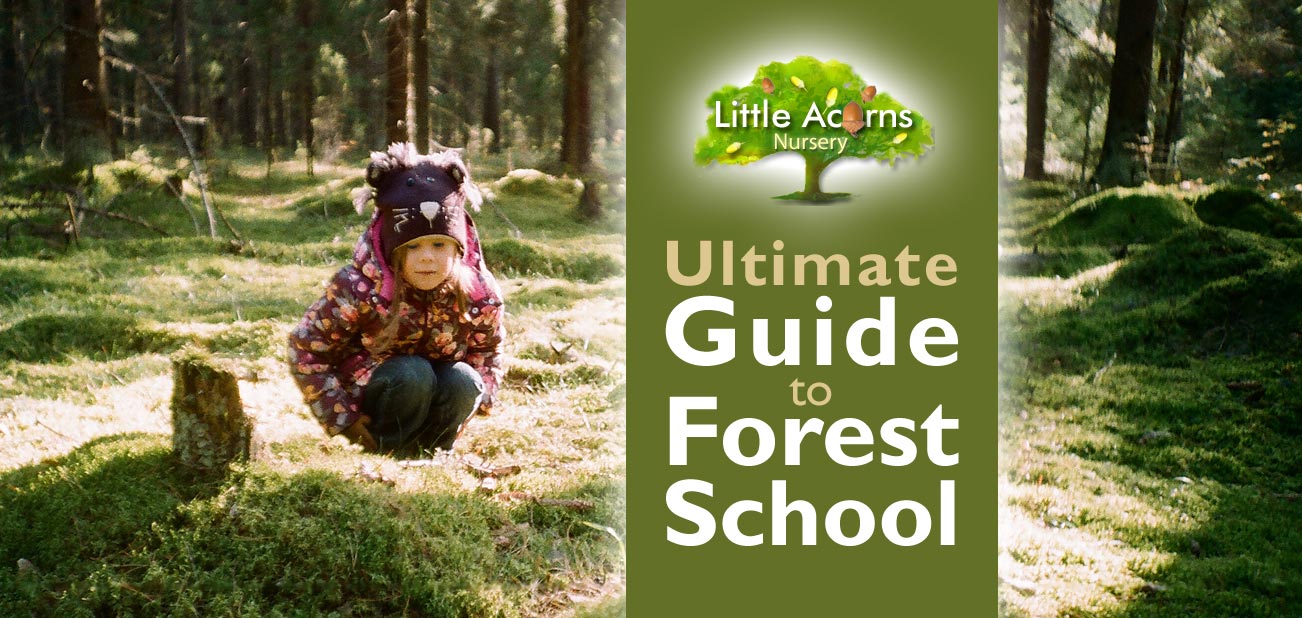
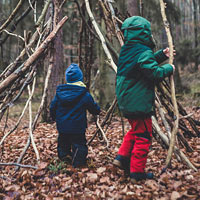 Little Acorns Nursery offers Forest School sessions* and, indeed, was the first childcare setting in the Chorley area to offer them. Many parents understand that ‘Forest School’ offers children outdoor discovery sessions where they can explore nature and all that the Great Outdoors has to offer. However, what’s it really about? What is the ethos behind it? How did it come about and what is its history? Perhaps most importantly, what are its benefits to children? Here we’ll answer all those questions and more, in our Ultimate Guide to Forest School.
Little Acorns Nursery offers Forest School sessions* and, indeed, was the first childcare setting in the Chorley area to offer them. Many parents understand that ‘Forest School’ offers children outdoor discovery sessions where they can explore nature and all that the Great Outdoors has to offer. However, what’s it really about? What is the ethos behind it? How did it come about and what is its history? Perhaps most importantly, what are its benefits to children? Here we’ll answer all those questions and more, in our Ultimate Guide to Forest School.
Roots
Forest School’s roots1 can be found in the influence of many key proponents of outdoor play, learning and discovery, going back well over a century in places. The influencers include Robert Baden Powell who founded the Worldwide Scout movement, Leslie Paul who founded the Woodcraft Folk which is similar in many ways, Kurt Hahn who founded Gordonstoun with its enormous emphasis on outdoor education (Prince Charles having attended), the work of renowned educational psychologist and early nursery school proponent Susan Sutherland Isaacs, and the McMillan sisters who likewise believed in the importance of learning through play and exploration, having set up the Open-Air Nursery School & Training Centre a little over a century ago in 1914.
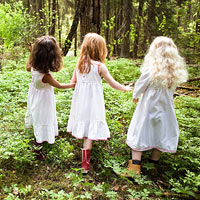 The biggest influence, however, came from Scandinavia and the play-based, child-centric educational system of Denmark’s outdoors (‘friluftsliv’) approach to early years education. Their revolutionary outdoor system was hugely successful, so nursery staff from Bridgewater College in Somerset visited Denmark to see it in action for themselves. They were so impressed that they founded the first Forest School, following their return to the UK, in 1993.
The biggest influence, however, came from Scandinavia and the play-based, child-centric educational system of Denmark’s outdoors (‘friluftsliv’) approach to early years education. Their revolutionary outdoor system was hugely successful, so nursery staff from Bridgewater College in Somerset visited Denmark to see it in action for themselves. They were so impressed that they founded the first Forest School, following their return to the UK, in 1993.
By 1995, the College had begun to offer a B-Tech Forest School qualification to similarly-minded early years practitioners. Before long, there were Forest School settings across the whole of the UK, Little Acorns Nursery in Clayton-le-Woods being the first in the Chorley area of Lancashire.
Forest School Now
Today, the Forest School Association (‘FSA’) oversees Forest School in the UK. It provides guidance on the Forest School philosophy, principles and values, provides a central reference point for Forest School settings, and oversees the work of Forest School practitioners. Its core framework comprises several key elements:
Regular Outdoor Sessions in the Natural Environment
 With a focus on nature and the natural world, Forest School sessions take place outdoors, ideally in natural, woodland settings. If that’s not possible, natural areas containing trees would be the next best setting, although more urban locations may necessitate the use of school grounds if no woodlands are available locally. In that scenario, practitioners would bring in natural materials such as sticks, logs, fir cones and so on.
With a focus on nature and the natural world, Forest School sessions take place outdoors, ideally in natural, woodland settings. If that’s not possible, natural areas containing trees would be the next best setting, although more urban locations may necessitate the use of school grounds if no woodlands are available locally. In that scenario, practitioners would bring in natural materials such as sticks, logs, fir cones and so on.
The sessions should be regularly attended (ideally fortnightly as a minimum) over the course of the long-term and during all four seasons of the year. They are highly structured too, so as to build upon skills and knowledge accrued as they progress through time. Children will learn naturally as they explore and discover the natural environment and everything found there. Care is taken, though, to minimise any human impact on that environment.
Lessons from Nature
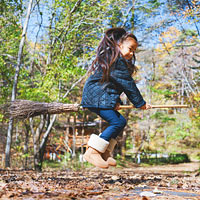 Forest Schools focus on each child’s individual interests, skills, preferences and needs as well as balancing them with those of the whole group. Indeed, this builds a community that’s immersed in this natural environment, learning from it and also from one another. Play is a huge part of this and, as always, ensures that learning is immense fun.
Forest Schools focus on each child’s individual interests, skills, preferences and needs as well as balancing them with those of the whole group. Indeed, this builds a community that’s immersed in this natural environment, learning from it and also from one another. Play is a huge part of this and, as always, ensures that learning is immense fun.
Forest School aims to develop the whole person, helping children’s independence, creativity, confidence and resilience to bloom. It’s also holistic and the children will grow spiritually and emotionally as well as physically and linguistically.
It’s interesting to note that Forest School will also teach children skills around identifying and mitigating risk as well as something about the benefits of occasionally failing. Failing is indeed often necessary as part of the progression towards achievement. After all, even countless global businesses themselves failed several times before they eventually succeeded in spectacular fashion.
Forest School Practitioners
Practitioners are required to achieve Level 3 Forest School accreditation and to continuously maintain and progress their own learning. They are, of course, all checked for suitability to work with children and are trained in First Aid as appropriate for the age group and environment in question. Practitioners will continuously monitor and appraise the learning and progress of those under their stewardship, celebrating achievements with them and building future lesson plans around the progress of each individual.
The Profound Benefits of Forest School
Forest School opens children’s eyes to a whole new, magical world. Nature is amazing when you look at it closely and take time to appreciate it. From tiny details to enormous landscapes, it’s an absolute wonder when you stop to look.
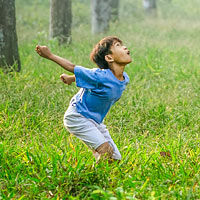 Nature teaches children so much — about flora, fauna and the make-up of the world (of course); but it also teaches children about themselves. Children will learn or discover new hard and soft skills when out in the natural world. They’ll discover skills that they didn’t know they had. Leadership, critical thinking, team-working and problem-solving are just a few examples.
Nature teaches children so much — about flora, fauna and the make-up of the world (of course); but it also teaches children about themselves. Children will learn or discover new hard and soft skills when out in the natural world. They’ll discover skills that they didn’t know they had. Leadership, critical thinking, team-working and problem-solving are just a few examples.
Forest School will also help children socially. Bonds will be made and group dynamics may well improve permanently as children begin to understand each other on much deeper levels.
Children will also grow spiritually, away from electronic screens and other technology.
Nature is a great equaliser too — socio-economic background becomes just an irrelevance out in the wild. Many children with previously challenging behaviour also end up positively flourishing with Forest School, as do many who were previously introverted or reserved. Having achieved and celebrated regular successes along the way, confidence naturally grows, hand-in-hand with self-esteem.
Forest School can have a profound and life-long positive impact on children. Many who spent a significant amount of time as a child out in nature, as part of a group or organisation similar to Forest School, can attest the the fact that it was a hugely positive part of childhood, if not the most enjoyable and fulfilling part of growing up. The foundation set during those formative years has gone on to give many a life-long interest in The Great Outdoors and a profound appreciation of nature and the natural world. Many, to this day, are at their most content outdoors, surrounded by nature and free. That is a profoundly positive outcome.
Our Forest School in Clayton-le-Woods, Chorley, Lancashire
Little Acorns Nursery in Clayton-le-Woods, Chorley, runs its own Forest School as an integral part of the setting’s outstanding childcare activities and curriculum. To slightly paraphrase the Forest School Association’s own definition, it is …
“an inspirational process that offers children regular opportunities to achieve, develop confidence and self esteem through hands-on learning experiences in a local woodland environment.”
If you would like to explore the idea of your child attending our Forest School sessions in Clayton-le-Woods, Chorley, then do get in touch (please choose a button below). Spaces are limited but we currently have a few places available for under-fives …

